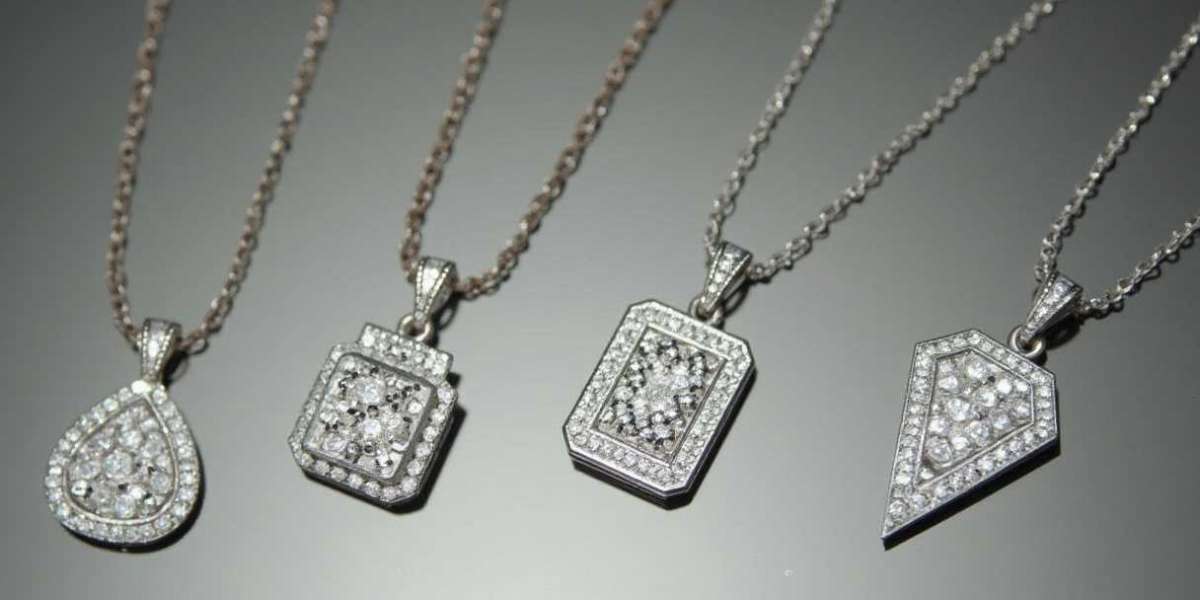Introduction
Lab-grown diamond pendants are a beautiful and valuable addition to any jewelry collection. These diamonds offer the same brilliance and durability as mined diamonds but at a more affordable price. As their popularity continues to rise, it’s important to know how to care for them properly.
Like all diamonds, lab-grown diamonds can lose their sparkle over time if not maintained well. Dust, dirt, and everyday wear can dull their shine. To keep your pendant looking as stunning as the day you got it, regular care is essential.
In this guide, you will learn the best ways to clean, store, and protect your lab-grown diamond pendant. Follow these tips to maintain its brilliance for years to come.
Cleaning Your Lab-Grown Diamond Pendant
How Often Should You Clean It?
Cleaning your pendant regularly helps prevent dirt and oil buildup. Ideally, you should clean it once every two weeks. If your pendant looks dull or cloudy, it’s time for a quick cleaning.
Safe Cleaning Methods
Using the right cleaning method ensures that your pendant stays in excellent condition. Here are two safe ways to clean your lab-grown diamond pendant:
1. Soap and Water Method
This is the easiest and safest way to clean your pendant at home.
Steps:
Mix a few drops of mild dish soap with lukewarm water.
Soak the pendant for 15–20 minutes.
Use a soft toothbrush to gently scrub the diamond and setting.
Rinse under clean water and dry with a lint-free cloth.
2. Commercial Jewelry Cleaners
If you prefer a store-bought cleaner, choose one made for diamonds.
Tips:
Read the label carefully to ensure it is safe for diamonds and metal settings.
Test the cleaner on a small area before full use.
Avoid cleaners with harsh chemicals like ammonia or chlorine.
Storing Your Lab-Grown Diamond Pendant Correctly
Proper storage prevents scratches, damage, and tarnishing. Here’s how to store your pendant safely:
Protecting Against Scratches
Diamonds are the hardest gemstones, but they can still scratch other jewelry. Always store your pendant separately.
Preventing Tarnish on the Setting
Some metals, like silver, can tarnish over time. To prevent this:
Store your pendant in a soft-lined jewelry box or a fabric pouch.
Keep it away from moisture and extreme temperatures.
Use anti-tarnish strips for silver settings.
Protecting Your Lab-Grown Diamond Pendant from Damage
Daily activities can expose your pendant to potential damage. Follow these precautions:
Activities to Avoid
Certain activities can scratch or loosen the diamond.
Avoid wearing your pendant during:
Sports or gym workouts
Gardening
Household chores that involve harsh chemicals
Avoiding Harsh Chemicals
Exposure to chemicals can damage both the diamond and the metal setting.
Common harmful chemicals:
Chlorine (swimming pools)
Bleach (household cleaners)
Hairspray, lotion, and perfume (can leave a film on the diamond)
Inspecting Your Pendant Regularly
Regular checks help catch problems early. Here’s what to look for:
Loose Stones: If the diamond moves when touched, the prongs may need tightening.
Damaged Setting: Look for bent prongs or cracks in the metal.
If you notice any issues, take your pendant to a jeweler for repairs.
Professional Maintenance for Lasting Sparkle
Sometimes, professional care is needed to keep your pendant in top shape.
When to See a Jeweler
Consider professional cleaning and inspection at least once a year.
Benefits of Professional Maintenance
Deep cleaning removes stubborn dirt.
Prong tightening ensures the diamond stays secure.
Polishing restores the metal’s shine.
Choosing a Reputable Jeweler:
Check online reviews and credentials.
Ask if they have experience with lab-grown diamonds.
Expert Tip: "Regular professional check-ups extend the life and brilliance of lab-grown diamond pendants." – [Certified Gemologist]
Understanding Your Lab-Grown Diamond
Lab-grown diamonds are real diamonds with the same composition and durability as mined diamonds. Let’s clear up some myths:
Common Misconceptions
Myth: Lab-grown diamonds are fake.
Truth: They have the same chemical and physical properties as mined diamonds.
Myth: They are lower in quality.
Truth: Lab-grown diamonds often have fewer impurities than natural diamonds.
Warranty and Insurance Considerations
Protect your investment by reviewing the warranty and considering jewelry insurance.
Warranty: Check what is covered, such as defects or setting issues.
Jewelry Insurance: Covers loss, theft, or damage.
Case Study: Sarah’s Damaged Pendant
Sarah wore her pendant daily but never checked the setting. One day, she noticed the diamond was loose. A quick visit to the jeweler saved her pendant from losing the stone. Regular inspections could have prevented this issue.
Conclusion
Taking proper care of your lab-grown diamond pendant ensures it stays beautiful for years. Regular cleaning, proper storage, and protective measures keep it sparkling.
Key Takeaways:
Clean your pendant every two weeks using mild soap and water.
Store it in a soft pouch or jewelry box to prevent scratches.
Avoid wearing it during strenuous activities and exposure to harsh chemicals.
Inspect it regularly and seek professional maintenance when needed.
By following these simple steps, you can enjoy the brilliance of your lab-grown diamond pendant for a lifetime.




